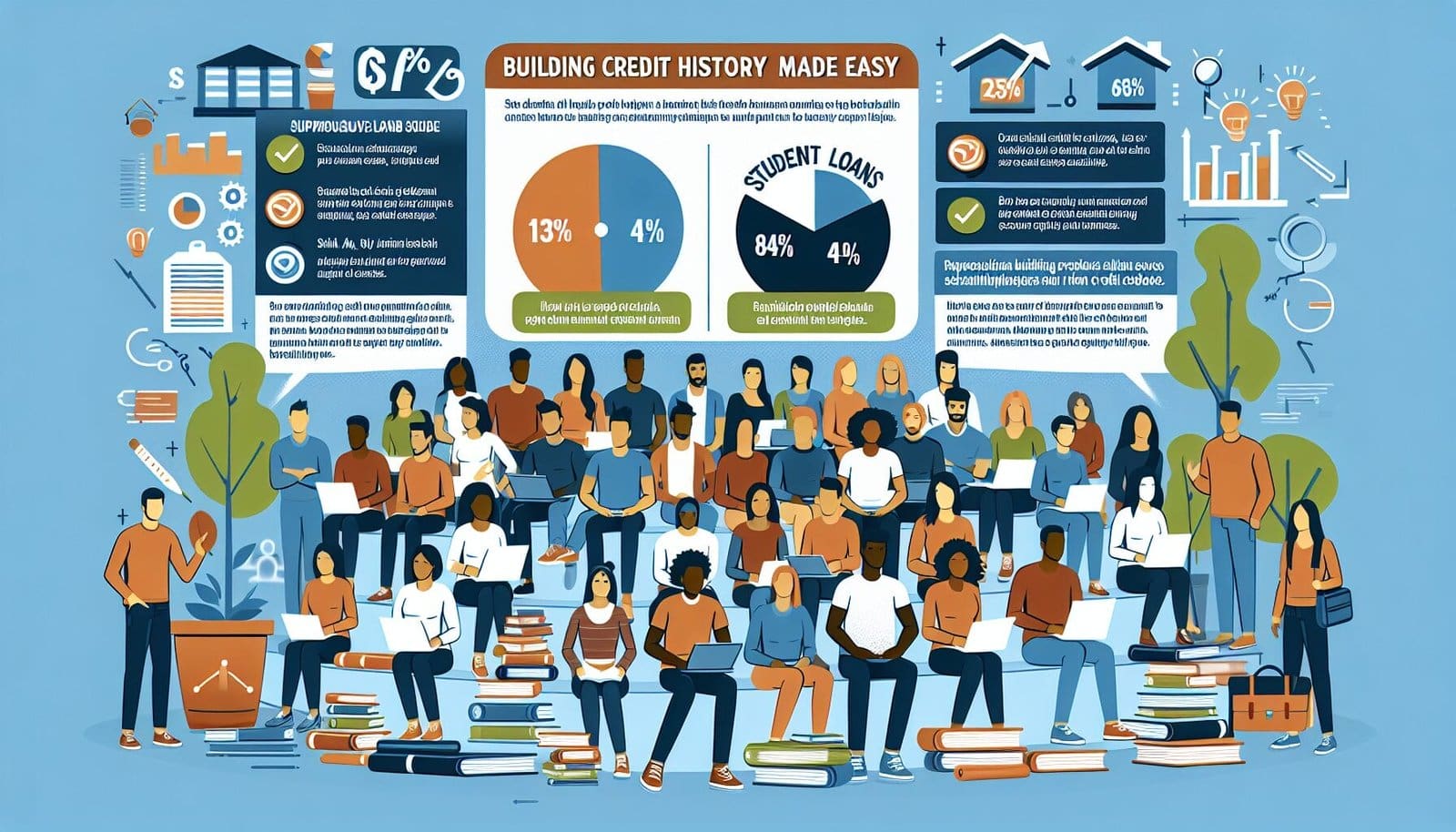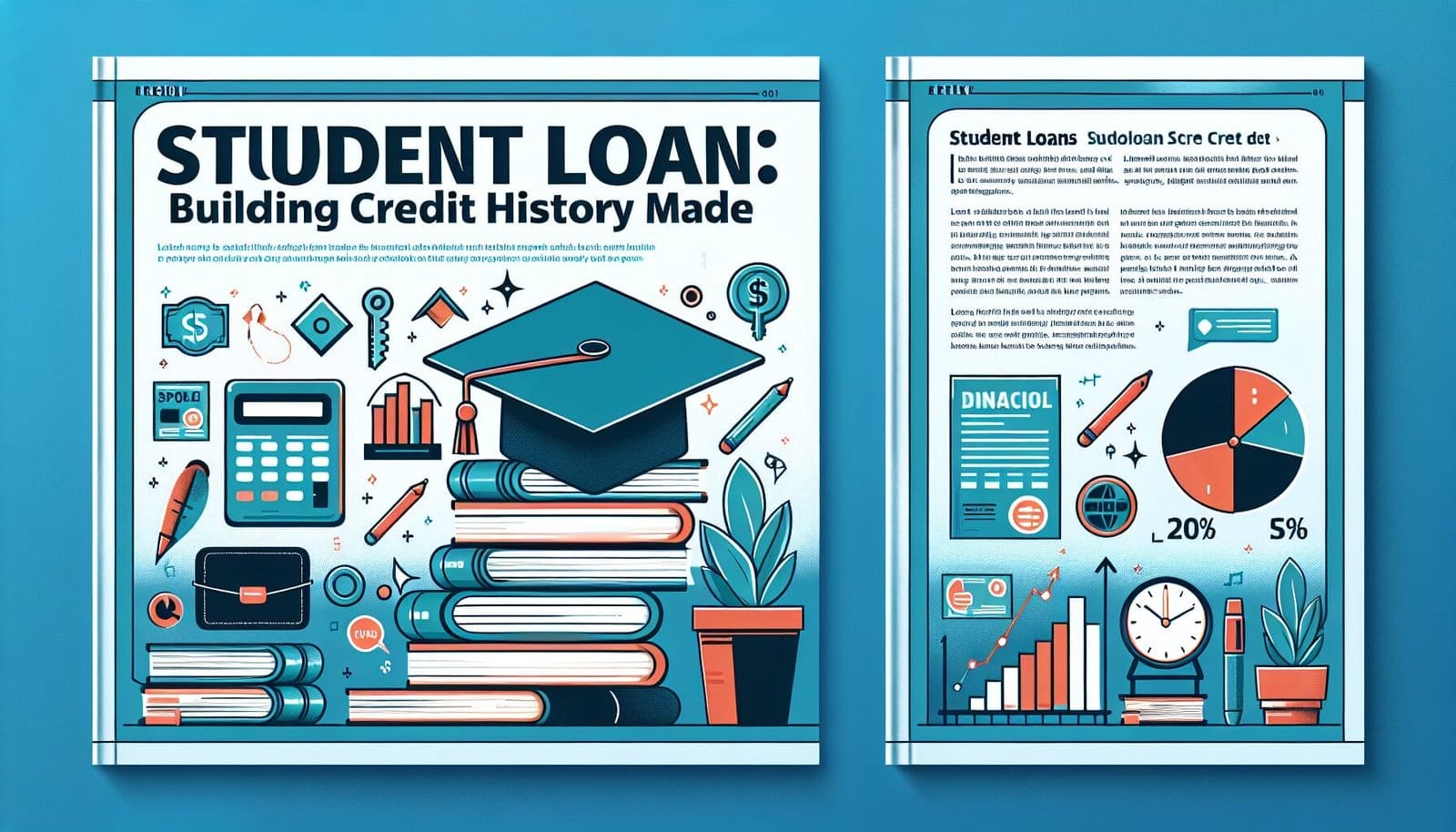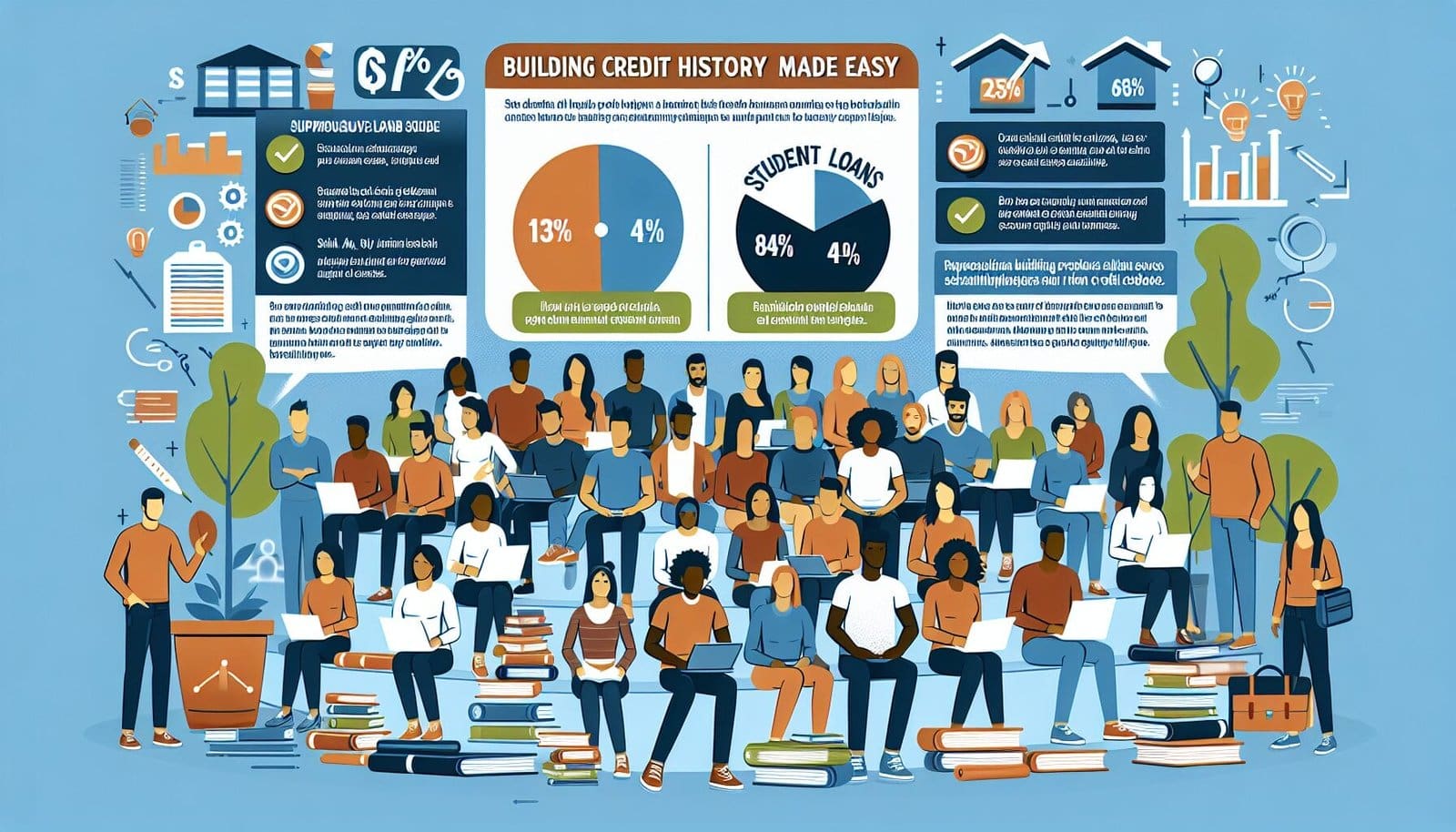Are you a student looking for a way to start building your credit history? Look no further than student loans. These loans not only provide financial assistance for your education, but they also offer a fantastic opportunity to establish a solid credit foundation. By responsibly managing your student loans, you can lay the groundwork for a bright financial future while pursuing your academic dreams. In this article, we will explore the benefits of student loans when it comes to building credit history and offer some useful tips to ensure you make the most of this valuable opportunity.
Student Loans: Building Credit History Made Easy
Understanding the Importance of Credit History
Having a good credit history is crucial for financial success. It affects our ability to secure loans, rent an apartment, and even land a job. A credit history is a record of our ability to repay borrowed money and manage debt responsibly. For students, building a positive credit history is especially important as it sets the foundation for their financial future.
Introduction to Student Loans
Student loans are a common financial resource for students pursuing higher education. These loans are specifically designed to help cover the costs of tuition, books, and other educational expenses. There are two main types of student loans: federal loans and private loans.
1. Federal Student Loans
Federal student loans are loans offered by the U.S. Department of Education. These loans typically have lower interest rates and more flexible repayment options compared to private loans. They are a popular choice among students due to their borrower-friendly terms and conditions.
1.1 Subsidized Loans
Subsidized loans are a type of federal student loan where the government pays the interest while the borrower is in school, during the grace period, and in deferment. These loans are need-based, and eligibility is determined by the student's financial need.
1.2 Unsubsidized Loans
Unsubsidized loans, on the other hand, are not need-based and accrue interest from the day they are disbursed. Students are responsible for paying the interest while in school, or they can choose to have the interest capitalized and added to the principal balance of the loan.
1.3 PLUS Loans
Parent PLUS Loans are federal loans available to parents of undergraduate students. These loans assist parents in covering the cost of their child's education. Grad PLUS Loans are federal loans available to graduate or professional students to help finance their higher education expenses.

2. Private Student Loans
Private student loans are offered by private lenders, such as banks or credit unions. These loans are not backed by the government and have interest rates that are usually higher than federal loans. Private loans may be an option for students who have exhausted their eligibility for federal loans or who require additional funding.
2.1 Fixed Interest Rate Loans
Fixed interest rate loans have a consistent interest rate throughout the loan term. This means that the interest rate will not change, regardless of fluctuations in the market. Fixed interest rate loans provide stability and allow borrowers to accurately plan and budget their loan repayment.
2.2 Variable Interest Rate Loans
Variable interest rate loans have an interest rate that may change over time, typically tied to a benchmark interest rate, such as the Prime Rate or LIBOR. These loans may offer lower initial interest rates, but they can fluctuate, resulting in potential increases in monthly payments.
How Student Loans Help Build Credit History
Now that we have a basic understanding of student loans, let's explore how they can help students build their credit history.
1. Establishing Credit with Student Loans
For many young adults, student loans are their first experience with borrowing money. Taking out a student loan and making regular, on-time payments establishes a credit history for students. Lenders and credit bureaus consider this as evidence of responsible financial behavior.
2. Payment History and its Impact on Credit
Payment history is the most crucial factor in determining creditworthiness. Making timely payments on student loans helps to build a positive payment history, which in turn impacts credit scores. Consistently paying student loan installments on time demonstrates reliability and responsible financial management.

3. Utilization Rate and Credit Score
Utilization rate refers to the percentage of available credit that a person uses. This rate plays a significant role in credit scores. By responsibly managing student loan payments, students can keep their utilization rate low, positively impacting their credit score.
4. Length of Credit History
The length of a person's credit history is an important factor in credit scoring models. By starting early with student loans, students can establish a long credit history. A longer history demonstrates stability and reliability in managing credit, positively influencing credit scores.
5. Diversity of Credit Accounts
Having a diverse mix of credit accounts can also impact credit scores. Adding student loans to the credit mix can improve the diversity of credit accounts and contribute to a well-rounded credit profile.
6. Responsibility and Financial Management
Managing student loan repayments responsibly showcases financial responsibility and discipline to lenders and credit bureaus. Demonstrating these qualities through responsible debt management can contribute to a positive credit history, opening doors to future financial opportunities.
Tips for Building a Positive Credit History
To ensure a positive credit history, here are some essential tips for students to consider:
1. Make Timely Payments
Always prioritize making timely payments on student loans. Set up automatic payments or reminders to avoid missing deadlines.
Student Loans: Building Credit History Made Easy
2. Keep Loans in Good Standing
Maintain good standing on student loans by staying updated on payment schedules and communicating with loan servicers if facing financial difficulties. Avoid defaulting on loans at all costs, as it can significantly damage credit history.
3. Monitor Credit Report Regularly
Regularly check credit reports for inaccuracies or fraudulent activity. Monitoring credit reports can help identify and address any issues promptly.
4. Keep Utilization Rate Low
Avoid using credit excessively. Keep credit card balances low and aim to use only a small percentage of available credit to maintain a low utilization rate.
5. Avoid Applying for Too Much Credit
Avoid applying for multiple credit accounts simultaneously, as it can negatively affect credit scores. Apply for credit only when necessary and do thorough research beforehand.
6. Maintain a Good Debt-to-Income Ratio
Strive to maintain a healthy balance between income and debt. This ratio demonstrates financial stability and responsible borrowing habits.
Conclusion
Building a positive credit history is essential for students as they navigate their financial futures. Student loans provide a unique opportunity to establish credit and demonstrate responsible financial management. By understanding the importance of credit history, exploring different types of student loans, and following essential tips, students can pave the way for a successful financial future and achieve their goals.





